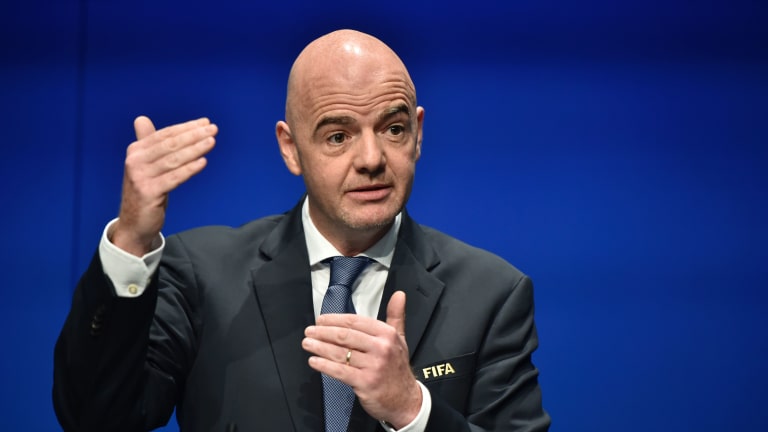A Swiss parliamentary commission on Wednesday decided to open proceedings that could see the country’s attorney-general dismissed as part of an investigation over a number of alleged secret meetings with FIFA president Gianni Infantino.
The commission voted by 13 votes to four to initiate a case against Michael Lauber.
It is “due to a well-founded suspicion of serious violation of the duties of office either intentionally or by gross negligence”, explained the president of the commission, Andrea Caroni.
If, at the end of the procedure, the commission finds that the suspicions are confirmed, it will submit a proposal for dismissal to parliament who will decide on the sacking.
Read Also: Football Will Be Different Post-Coronavirus – Infantino
Otherwise, the procedure will be closed, the commission said in a statement.
Lauber came out of the building, where Wednesday’s proceedings were held in private, simply declaring: “It went very well”.
According to the report, Lauber, 54, was in charge of matters related to the notorious corruption scandal at FIFA.
However, he “violated several duties of office” by meeting Infantino on three occasions in 2016 and 2017.
“On several occasions, Mr. Lauber did not speak the truth, acted unfairly, violated the code of conduct and obstructed the investigation,” argued the monitoring authority.
Lauber has staunchly defended himself.
“The fundamental principles of the rule of law are being thrown overboard,” said Lauber, in his appeal to the Administrative Court at the end of April, and reported on Saturday by sections of the Swiss media.
He accused the members of the judicial commission of being “biased” and of demonstrating “a bias” against him.
Lauber said they were dealing “in speculation and (had) a constant disregard for all the facts and extenuating circumstances.”
FIFA has never denied the meetings between Infantino and Lauber, explaining that they were intended to show that the international football federation, which has the status of complainant in certain procedures, was “ready to collaborate with Swiss justice”.
But the legal vagueness in which these meetings took place has raised questions.
AFP
